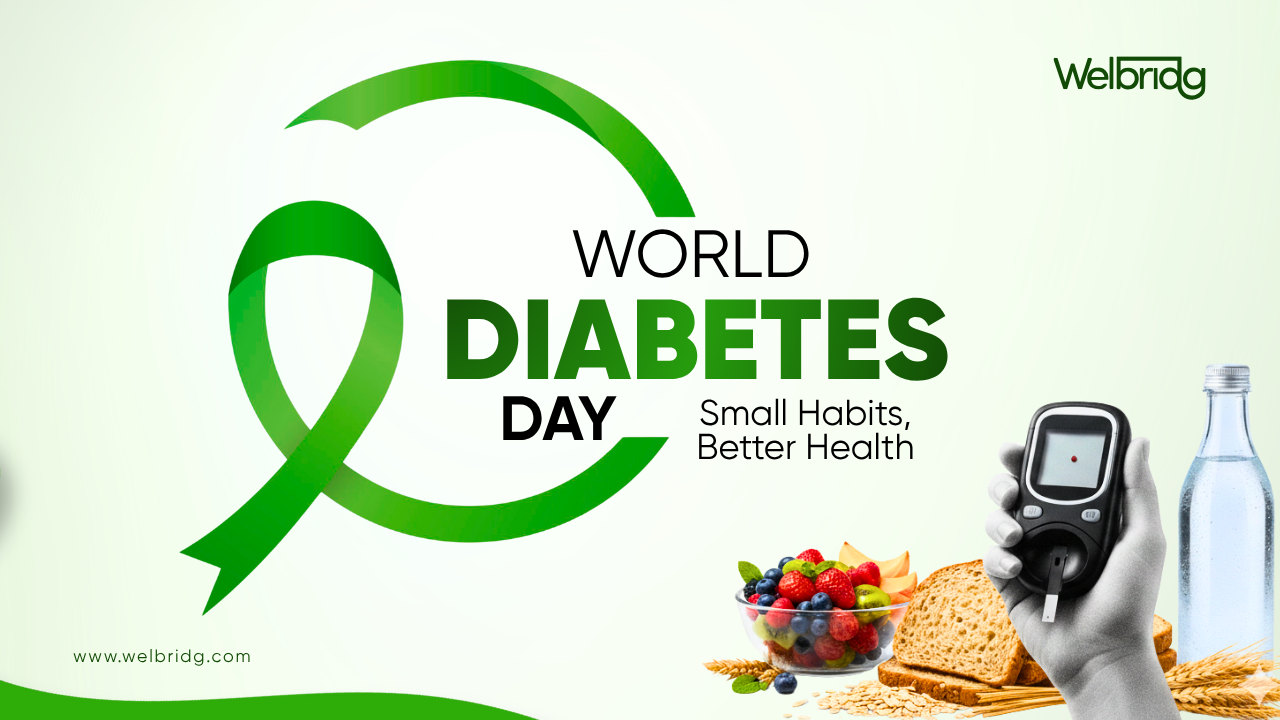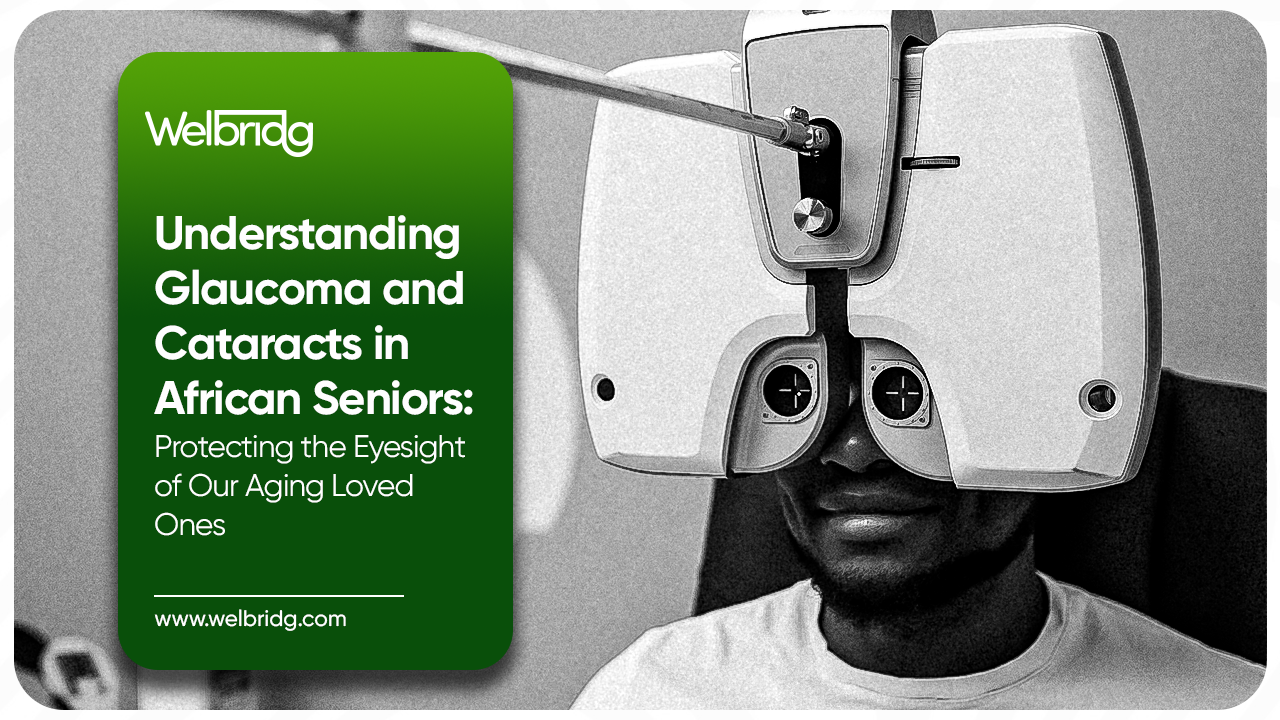Caring for Elderly Parents with Chronic Conditions: A Guide to Health Management
Posted: 3rd Oct, 2024 By: yinksey

With age, managing our parents' health becomes more challenging, particularly when chronic illnesses such as diabetes, hypertension, arthritis, or heart disease are present. These conditions require continuous attention to avoid complications and support their well-being.
For those of us with elderly parents, particularly if we live far away, the challenge of managing these chronic conditions can feel overwhelming. But with the right strategies, tools, and support systems in place, it's possible to keep their health on track and ensure they receive the care they need.
Understanding Chronic Disease in the Elderly
Chronic diseases are long-term conditions that need continuous monitoring and management. In elderly individuals, these conditions often require lifestyle changes, medical interventions, and frequent checkups. The most common chronic illnesses affecting the elderly include:
Diabetes: Requires careful blood sugar monitoring, dietary management, and adherence to medication.
Hypertension: Involves controlling blood pressure through medication, regular checkups, and lifestyle adjustments.
Arthritis: Focuses on pain management, mobility exercises, and reducing inflammation through medication and therapy.
Heart Disease: Requires regular monitoring of cardiovascular health, along with lifestyle changes such as diet and exercise.
The key to successfully managing these conditions is not just treatment but proactive, preventive care. By staying ahead of potential complications, you can ensure that your parents' health is prioritized and maintained.
1. Regular Health Checkups: A Non-Negotiable Strategy
Regular health checkups are critical in monitoring chronic conditions, adjusting treatments, and detecting any changes in your parents' health. Routine screenings and tests allow healthcare providers to detect issues early, ensuring timely interventions and adjustments to the treatment plan.
Key health checkups include:
Blood Pressure Monitoring: Vital for those with hypertension or heart disease.
Blood Sugar Testing: Essential for diabetes management.
Cholesterol and Cardiovascular Screenings: Necessary for maintaining heart health.
Mobility Assessments: Important for managing conditions like arthritis that affect movement and joints.
By keeping up with these tests, your parents can catch potential complications before they become serious, helping them stay healthier for longer.
2. Simplifying Medication Management
Medication is often a cornerstone of chronic disease management. However, managing multiple medications—especially for elderly parents—can be overwhelming. Missing doses, taking the wrong medication, or mismanaging prescriptions can lead to serious health risks.
Practical tools for medication management:
Pill Organizers: Organizing daily doses helps reduce confusion and ensures correct dosages are taken at the right times.
Digital Reminders: Setting alarms or using apps to remind your parents when it’s time to take their medication is an effective way to stay on track.
Streamlined Prescription Refills: Automating prescription refills or scheduling reminders with your parents’ pharmacy can help eliminate the risk of running out of essential medication.
Caregivers or family members can also assist by regularly reviewing their medications, ensuring that any changes to dosages or new prescriptions are incorporated into their routine.
3. Leveraging Remote Health Monitoring and Technology
Advances in technology have made it easier to monitor chronic conditions, even from a distance. If you live far away from your parents, remote health monitoring tools can be a lifesaver, allowing you to keep track of their well-being without being physically present.
Key technologies include:
Telemedicine: Virtual healthcare consultations allow your parents to consult with their doctor from the comfort of their home, saving them the strain of travel. You can even participate in these consultations to stay updated on their health.
Wearable Health Devices: Devices like smartwatches and health monitors can track vital signs such as heart rate, blood pressure, and blood sugar levels, providing real-time updates on your parents' health.
Health Monitoring Apps: These apps allow caregivers to access important health data, track symptoms, and receive alerts if any health indicators fall outside the normal range.
By incorporating these tools, you can stay informed about your parents’ health, even if you’re miles away, ensuring that timely interventions are made when needed.
4. Encouraging Physical Activity and a Balanced Diet
Maintaining a healthy lifestyle is key to managing chronic conditions. Even simple lifestyle changes can significantly improve your parents’ health and reduce the risk of complications.
Exercise:
Regular physical activity helps in managing conditions like diabetes, heart disease, and arthritis. Encourage your parents to take short walks, engage in stretching exercises, or even try swimming if it's available. These low-impact activities can improve their mobility, reduce joint pain, and enhance overall well-being.
Diet:
A balanced diet plays a major role in controlling chronic conditions. A diet rich in whole grains, fruits, vegetables, lean protein, and healthy fats can help regulate blood sugar, maintain a healthy weight, and reduce inflammation. It’s essential to ensure that your parents are getting the right nutrients tailored to their condition, especially if they have dietary restrictions due to diabetes or heart disease.
5. The Importance of a Support System
Caring for elderly parents with chronic conditions isn’t just about physical health—it’s about emotional support, too. Chronic illness can take a mental and emotional toll on your parents, making them feel isolated or anxious.
Having a strong support system—whether it’s family members, friends, or professional caregivers—can make a world of difference. Regular check-ins, visits, or even phone calls can provide your parents with the emotional support they need to stay positive and motivated.
Conclusion: Keeping Your Parents' Health a Priority
Managing chronic diseases for elderly parents requires a multi-faceted approach that involves proactive care, regular monitoring, and lifestyle adjustments. By integrating health checkups, medication management, remote monitoring, and a healthy lifestyle, you can help your parents stay on top of their health and manage their chronic conditions effectively.
While it can feel overwhelming at times, remember that you’re not alone in this journey. Platforms like Welbridg are designed to offer comprehensive support, whether through facilitating medical tests, delivering medications, or providing home care services—all tailored to the unique needs of your parents.
Take the first step in supporting your parents' health journey—let's keep them thriving.
RELATED ARTICLES

Managing Diabetes: Small Habits, Better Health
21st Nov, 2025
What is Arthritis? Managing Joint Pain in the Elderly
14th Oct, 2025
6 Most Important Exercises for People Over 60
29th Aug, 2025
How to Maintain a good health in old age
21st Jun, 2025
What a nutritionally balanced diet for elderly looks like
23rd May, 2025




